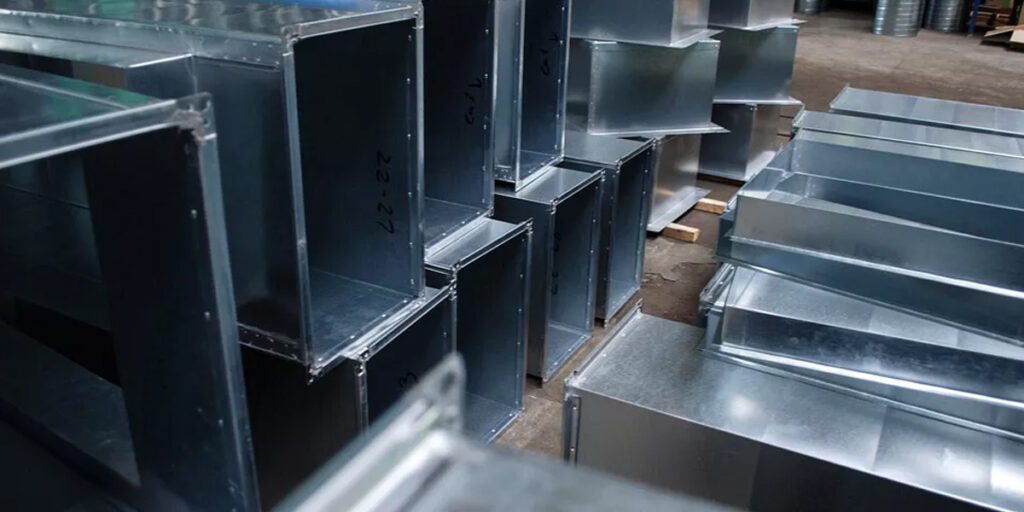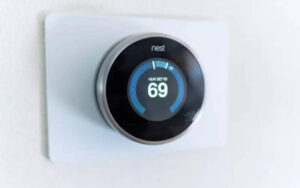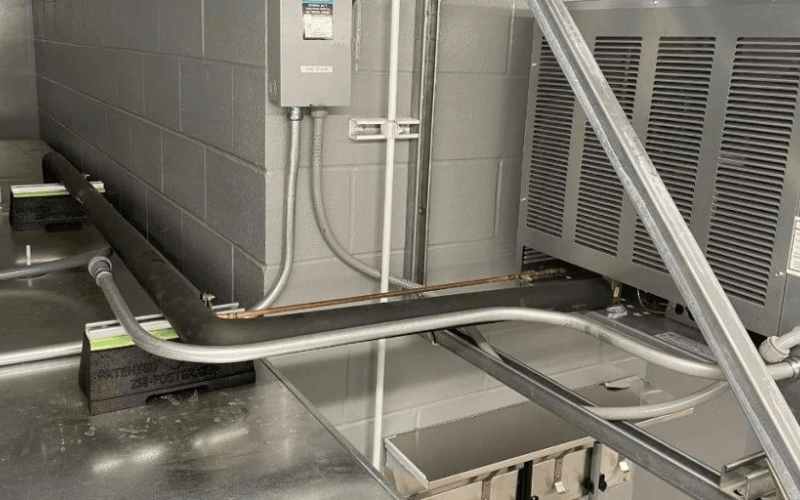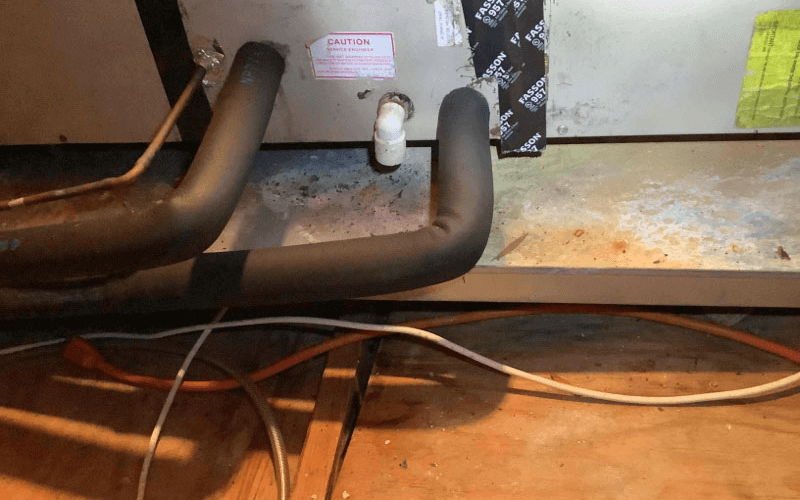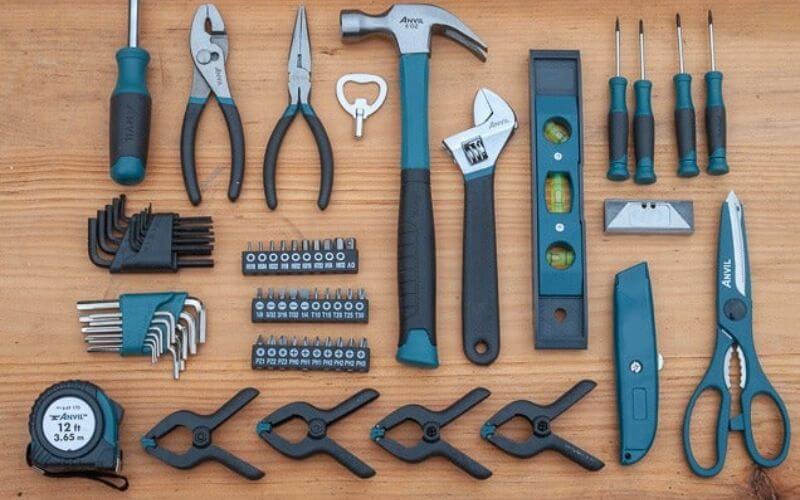Metal ducts are a popular choice for commercial and residential buildings, as they can provide efficient air distribution and help control sound transmission. When choosing between rigid or flexible aluminum ducts, both have their pros and cons.
Ultimately, the best type of metal duct depends on the specific application and requirements. The rigid aluminum duct is one of the most popular types for durability, recyclability, and lightweight properties. A flexible aluminum duct is another option worth considering, as it is more resistant to damage and can be easily installed in tight spaces.
Table of Contents
ToggleAlso check: Should Ductwork Be Replaced After 20 Years?
Benefits of Rigid Duct
The most obvious benefit to having rigid metal ductwork installed in your home is it’s highly durable. It will not sag under heavy air pressures and can support the weight of multiple bends. Also, it will not crack, split or leak if cut during installation or repair. Once properly sealed to prevent the infiltration of outdoor air into conditioned space, it provides years of reliable service without any significant maintenance required.
Rigid metal ducting has been used by HVAC contractors for over 100 years. And over that time, changes in technology have improved its performance and efficiency so that today’s metal ducts meet all building codes with no restrictions on size. And installation costs are reasonable as well.
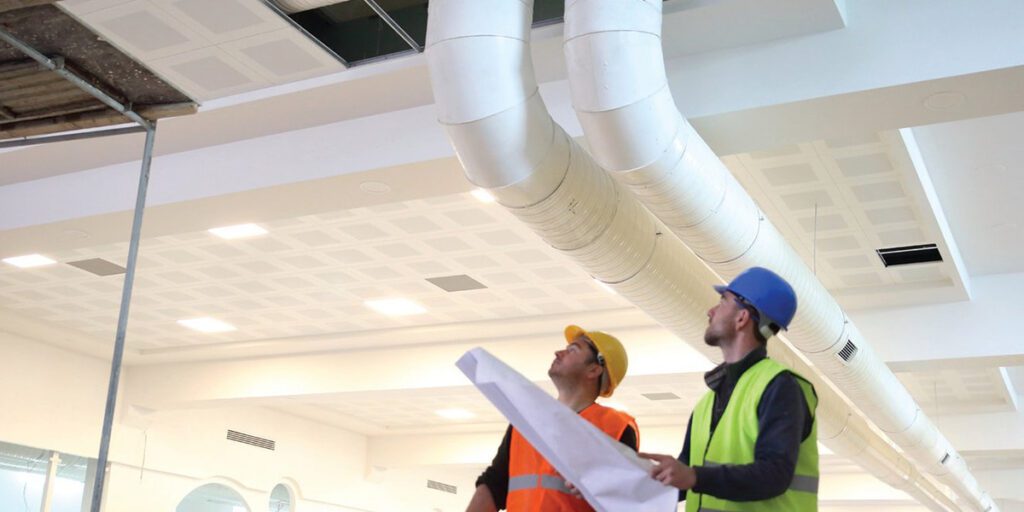
Benefits of Aluminum Flex Duct
Many homeowners choose flexible aluminum over other materials because it is lightweight and easy to handle. Flexible aluminum is much easier to cut holes and install fittings than rigid materials, requiring only one person to carry around a roll instead of two heavy rolls of metal. Aluminum is also lightweight and easy to bend compared to other metals such as stainless steel. Additionally, aluminum resists corrosion and oxidation, meaning it will not rust or corrode indoors. As a UV-resistant metal, sunlight naturally helps to protect the duct from the elements outside.
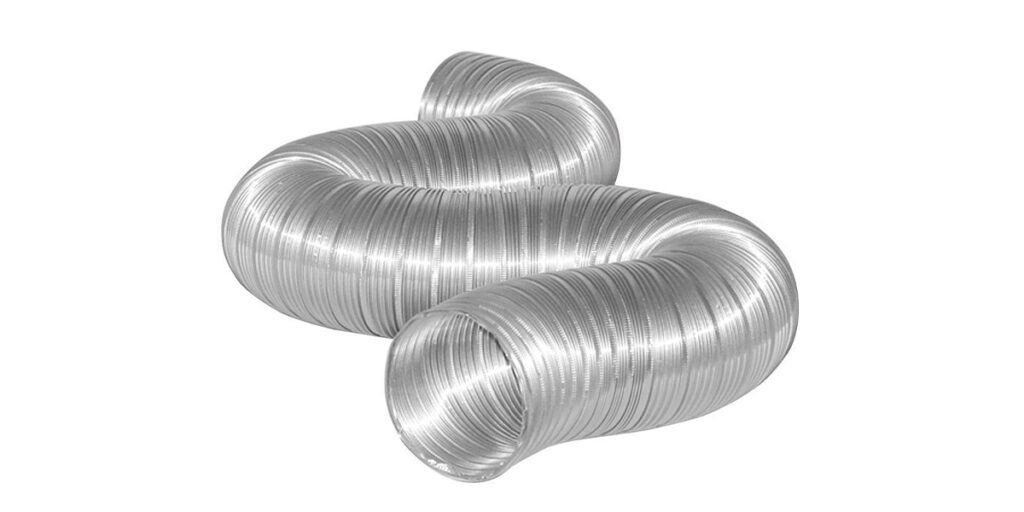
Flexible aluminum ducting has been used by HVAC contractors for over 50 years. Over time, changes in manufacturing have made adjustable aluminum more efficient and affordable, especially for larger sizes. In addition, advances in technology have significantly increased the life span of flexible ducts up to 40%. The rise in popularity can be attributed to its smooth interior surface that reduces pressure loss and its lightweight design compared to other materials such as galvanized steel. Manufacturers say that rigid metal ducting outperforms flexible aluminum ducting, but they offer no data to back up these claims. Typical duct losses for flex ducts tend to be higher than with rigid metal ducting, but most architects and engineers don’t consider these losses when designing a new building or home.
Which Metal Duct is Better?
Both types of metal ducting have their pros and cons. The answer to the question, “Which is better,” depends on your individual needs and what you expect from your HVAC system. If you’re looking for a highly durable material with long-term reliability, then rigid metal may be the best choice. On the other hand, if you need something lightweight that is easy to install into existing homes without moving framing members and outlets, then choose aluminum.
Note: If your heating and cooling contractor tells you that flexible metal ducting is no longer an option because of code violations, check with your municipality for the current building codes. Many areas have revised their ordinances to allow flex ducts up to 6 inches in size, provided they are correctly installed.
Conclusion:
In the end, it is up to you which type of metal duct you want to use. Both rigid and flexible aluminum have benefits that may work better for your specific needs. If you are still unsure or have any questions, contact a professional like K2 Heating & Air Conditioning, who can help you make the best decision for your home or office.

